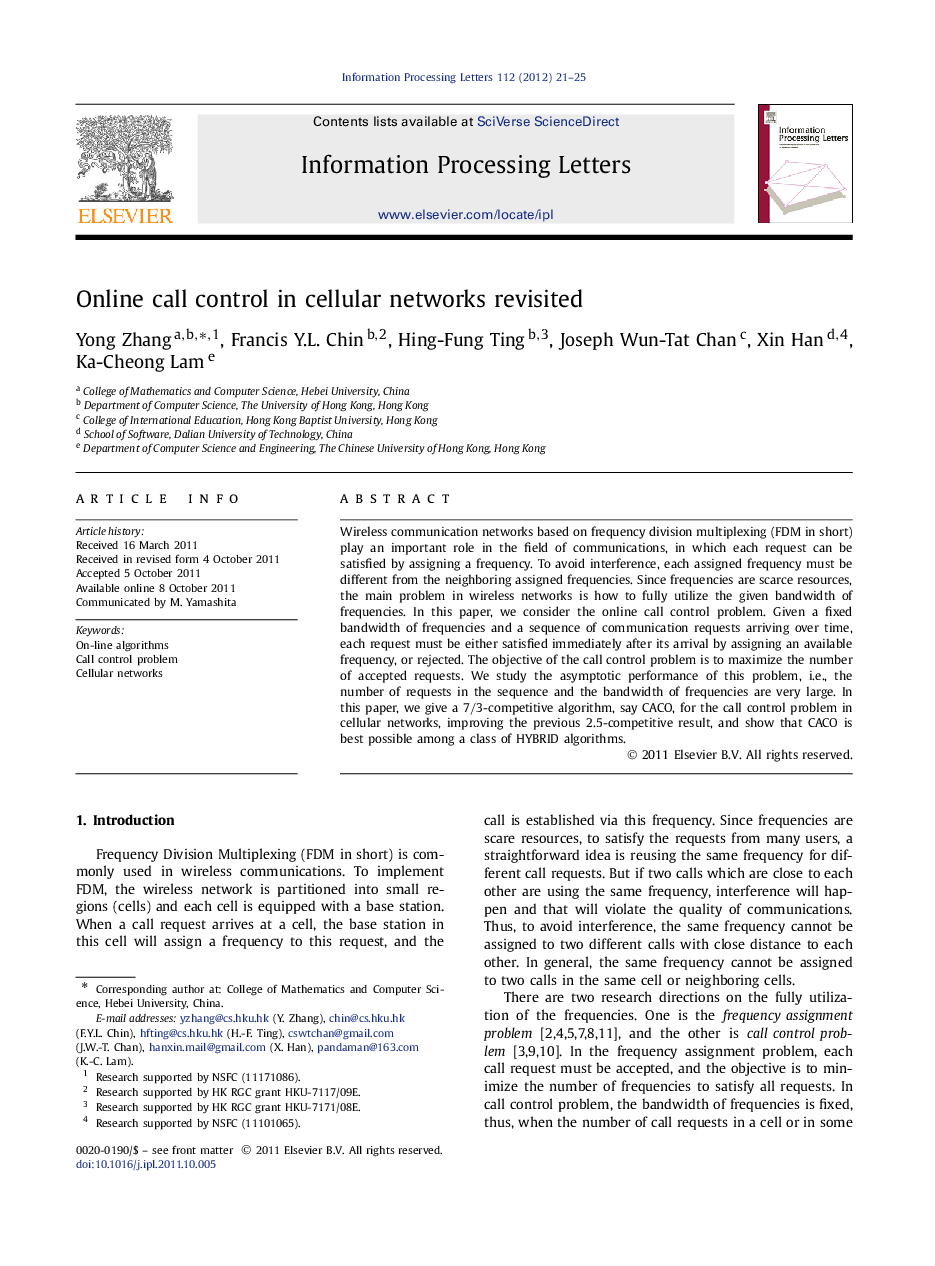| Article ID | Journal | Published Year | Pages | File Type |
|---|---|---|---|---|
| 427268 | Information Processing Letters | 2012 | 5 Pages |
Wireless communication networks based on frequency division multiplexing (FDM in short) play an important role in the field of communications, in which each request can be satisfied by assigning a frequency. To avoid interference, each assigned frequency must be different from the neighboring assigned frequencies. Since frequencies are scarce resources, the main problem in wireless networks is how to fully utilize the given bandwidth of frequencies. In this paper, we consider the online call control problem. Given a fixed bandwidth of frequencies and a sequence of communication requests arriving over time, each request must be either satisfied immediately after its arrival by assigning an available frequency, or rejected. The objective of the call control problem is to maximize the number of accepted requests. We study the asymptotic performance of this problem, i.e., the number of requests in the sequence and the bandwidth of frequencies are very large. In this paper, we give a 7/3-competitive algorithm, say CACO, for the call control problem in cellular networks, improving the previous 2.5-competitive result, and show that CACO is best possible among a class of HYBRID algorithms.
► Improving the performance of the previous best known algorithm for online call control problem. ► Define a class of algorithms, say HYBRID, for the online call control algorithm. ► Our algorithm is best possible among algorithms in HYBRID.
